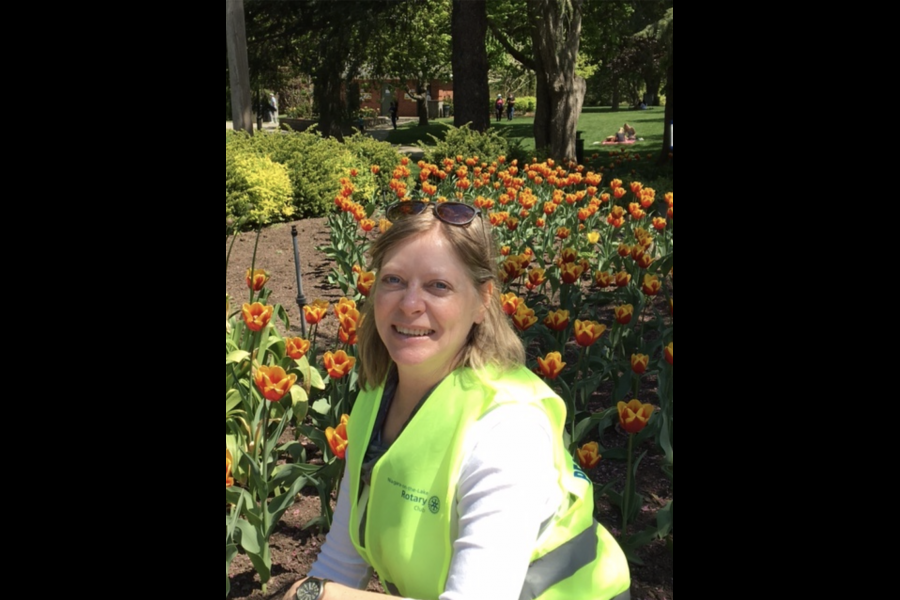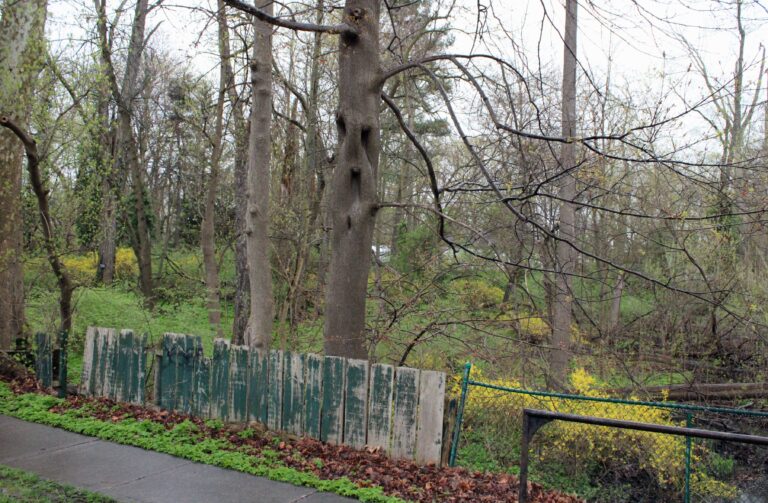David Israelson
Special to The Lake Report
If you watch your step, you’ll soon be able to tiptoe through the tulips at Simcoe Park, thanks to work by Niagara-on-the-Lake’s Rotary Club and NOTL’s parks and recreation department in support of the worldwide effort to end polio.
The NOTL Rotary Club will be planting tulip bulbs in the park this Friday, Oct. 22 between 9 and 11 a.m. It’s part of Rotary’s worldwide End Polio Now project. The parks department has made it possible by preparing a flower bed at the entrance to Simcoe Park and staff will assist with planting.
“Rotary International has been working to wipe out polio for more than 30 years and the goal of ridding the world of this disease is closer than ever,” said Patricia Murenbeeld, president of the NOTL Rotary Club.
The planting takes place two days before World Polio Day — Oct. 24 is when Rotary seeks to raise awareness of the global effort to have a polio-free world. The tulips will grow into distinctive red flowers with a bright yellow flame pattern.
The tulip sale and planting program, now in its second year in Canada, was started by Dutch Rotarians in 2013 and the fundraiser has spread to clubs and communities around the world.
“I’m of Dutch heritage, so it’s especially nice for me to be part of a great cause … and see beautiful tulips bloom in our town,” Murenbeeld says.
The worldwide program began as a modest effort to auction off naming and sale rights to charity for a new variety of tulip. Since then, more than 1.5 million Rotary End Polio Now tulip bulbs have been sold, generating more than $2 million (U.S.) to fight polio.
As a founding partner of the Global Polio Eradication Initiative, Rotary has reduced polio cases by 99.9 per cent since the first project to vaccinate children in the Philippines in 1979. Rotarians around the world have helped immunize more than 2.5 billion children in 122 countries and, so far, Rotary has contributed more than $1.8 billion toward eradicating this disease.
Today, polio remains endemic only in two countries, Afghanistan and Pakistan. But it’s crucial to keep working, so countries stay polio-free. If all efforts to wipe out the disease stopped today, within 10 years, polio could paralyze as many as 200,000 children each year.
The tulips in Simcoe Park will grow to between 16 and 20 inches — if you’re careful not to trample them when you tiptoe around them, rather than through. Your visit to Simcoe Park may also inspire you to buy and plant End Polio Now Tulips in your own garden next year.










